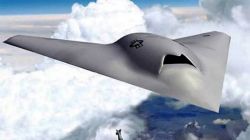Boeing, US Defense Department To Roll Out ‘Unhackable’ Drone By 2018

Boeing and US DoD are planning to roll out an unhackable unmanned aircraft by the end of 2017, nextgov.com website reported Thursday.
"The intent is to conduct an experiment to prove that these new coding techniques can create secure code at full scale," John Launchbury, who leads the program for the Defense Advanced Research Projects Agency was quoted as saying by the website.
"Cyberattacks on your PC -- they can steal information and they can steal money, but they don’t cause physical damage, whereas cyberattacks in a UAV or a car can cause physical damage and we really don’t want to open that can of worms," the website quoted Kathleen Fisher, the previous program manager of the DARPA project as saying.
The initiative, which launched in 2012, is called High-Assurance Cyber Military Systems. In addition to Boeing, National ICT Australia, Rockwell Collins and Computer science firm Galois are involved in the project.
Fisher said that the worst case scenario would be having an adversary (a terrorist organization) take command of a weaponized UAV and direct it to fire on a friendly target.
Or potentially even worse, the bad actor substitutes surveillance video showing U.S. allied forces with video showing ISIL activity so the decision-maker on base unknowingly fires at the allies.
Right now, defense industry programmers are rewriting software on the helicopter drone to encapsulate its communications computer. That way, no outsiders can steer the unmanned aerial vehicle to strike, say, civilians, or tamper with surveillance video to mask adversary targets.
"Boeing is on track to replace all the code on the vehicle by the end" of the program, Launchbury said, which lasts for 4.5 years. This particular Little Bird does not carry any weapons systems, he said.
The software will isolate all communications between the ground station and the aircraft from the outside world, according to program participants.
"Its main purpose is to rewrite and secure the mission computer on board the Little Bird," Launchbury said.
"We’ve developed a new programming language that is provably free from those vulnerabilities,” he said. “The approach is to transition the programming language we’ve developed, called Ivory, to Boeing so that they can rewrite their systems,” Lee Pike, Galois research lead for cyber-physical systems. He facilitated the hacker-proof mini-drone flight in 2014.









